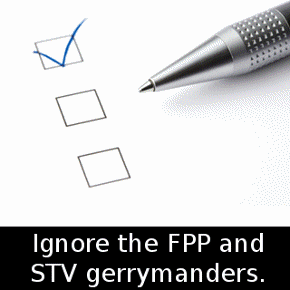Red faces at Crown Law
What on Earth is going on at Crown Law? The Crown Law office, headed by the Solicitor-General, is the official legal advisor to Ministers and to the public service. Short of getting a judgment from the courts, a Crown Law opinion has always been considered a weighty and influential document. But events this week have seen new questions being asked about the competence and impartiality of the Office.
The Electoral Finance Act now places firm restrictions on campaign expenditure by political parties for the whole of Election Year. It also requires third parties that intend to place more than $12,000 worth of election advertising to register their intentions and provide relevant details. After registration by the Electoral Commission, they may then spend up to $120,000 on election-related advertising. But the Act is clear that a person that is “involved in the administration of the affairs of a party” may not register as a third party. Otherwise it would be simple to rort the expenditure restrictions simply by registering, for example, the John Key for Prime Minister Society as a third party and spending $120,000 promoting the National Party cause. Then repeating the exercise as many times as the budget permits.
Last month, the nation’s largest union, the EPMU, applied to the Commission for registration. Yet the EPMU is affiliated to the Labour Party, and its Secretary Andrew Little sits on the Labour Executive. The Electoral Commission sought advice from Crown Law. And Crown Law advised that the restrictions in the EFA (S13(2)(f)(i)) did not apply to the union because the Act restricted “persons” and an organisation like the EPMU could not therefore fall within the definition.
The Commission, headed by former Justice McGeechan, followed the Crown Law advice, but, clearly apprehensive as to its quality, very sensibly left a period for legal challenges to play out before giving the EPMU registration. And this week the High Court very predictably overturned the Commission’s decision, and exposed the Crown Law advice for the shonky piece of work it was.
Now, there will be red faces over at Crown Law. Justice McKenzie’s “declaration” that the word “person” “has the meaning given to it by S29 of the Interpretation Act 1999” rather served to underline the fact that the legal definition of “person” was hardly in doubt from the outset. Quite how Crown Law had managed to come up with an interpretation that would have rendered the expenditure caps in the EFA totally meaningless boggles the mind.
But this is not the first time Crown Law has had difficulty with the EFA . Read the rest here
Labels: Electoral FInance Act




1 Comments:
Didn't Crown law go the other way on the money overspent in the last election? IIRC (and I may not) the Auditor General based his "pay it back" on a Crown law opinion.
I hope I have that right....Yes, I do. Here's a link.
http://www.parliament.nz/en-NZ/Admin/Speaker/PressReleases/9/5/a/95ad213d0c94486a83cd87979b107883.htm
This recent example looks like a mistake, not anything sinister.
Post a Comment
Subscribe to Post Comments [Atom]
<< Home